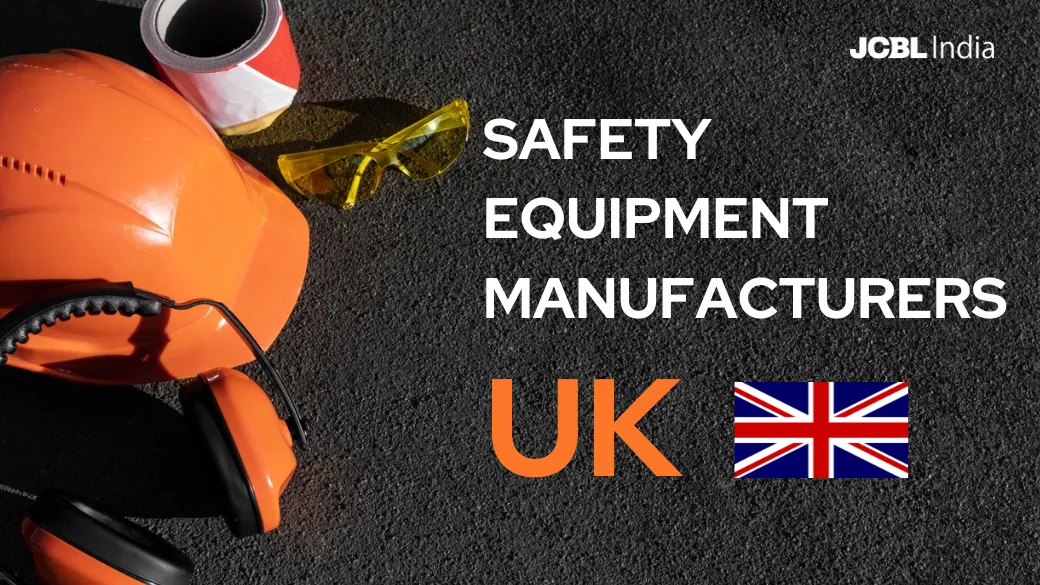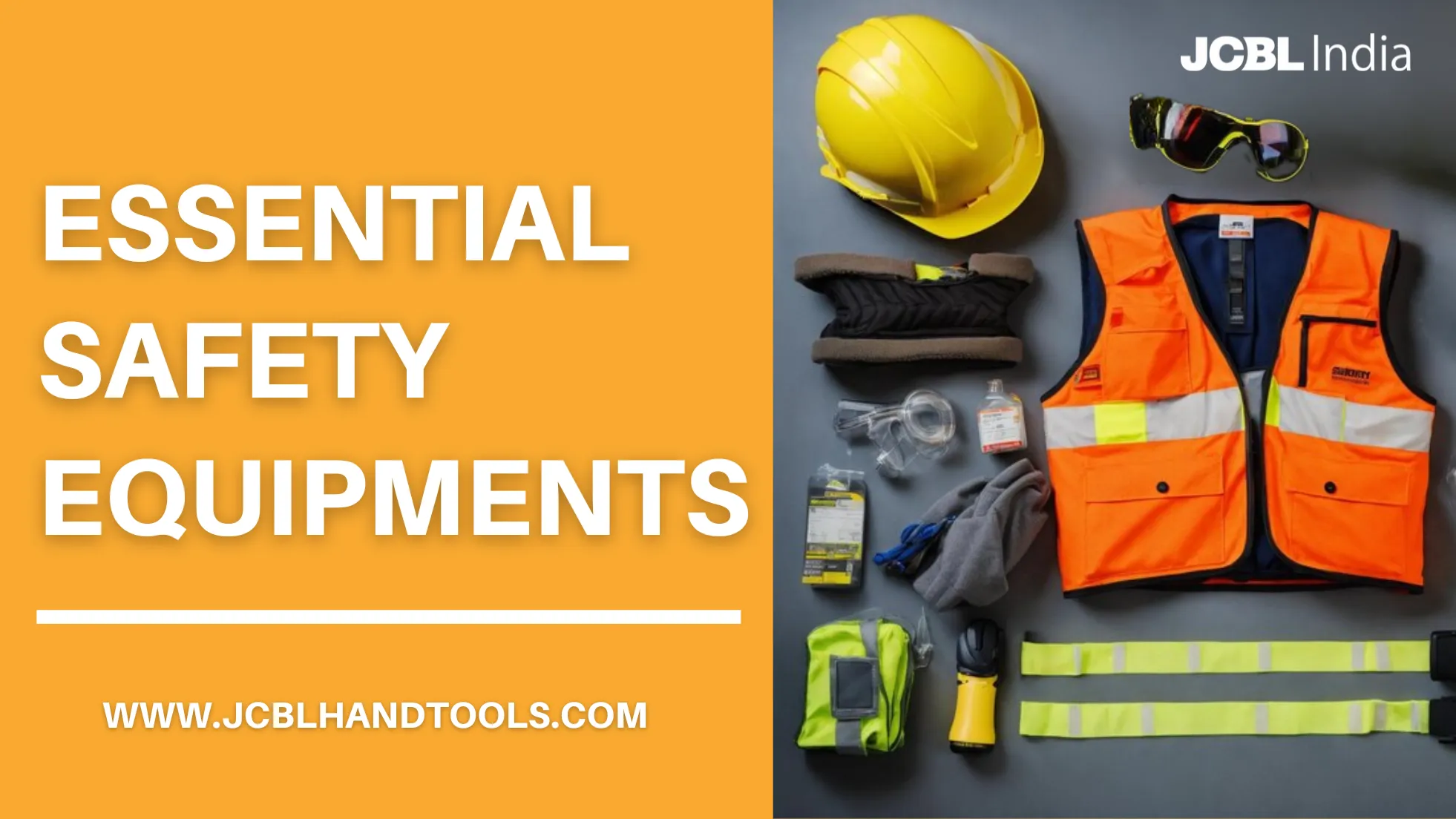How Safety Gloves Help Prevent Workplace Injuries

In industrial and high-risk work environments, Personal Protective Equipment (PPE) is essential, but while most workers don hard hats and steel-toe boots, one of the most frequently injured parts of the body often goes overlooked: the hands. Every year, thousands of workplace hand injuries occur across sectors—from construction and manufacturing to logistics and chemical plants. Many of these injuries are serious, often resulting in time away from work, expensive treatments, and long-term physical limitations. But most hand injuries can be avoided with the proper use of high-quality safety gloves. In this blog, we’ll explore how safety gloves serve as a primary defense against injuries, the types of gloves suitable for various jobs, and why JCBL Hand Tools is a name professionals trust when it comes to hand protection.
Why Are Hands Most Vulnerable to Injuries at the Workplace?
Every task you perform at work, be it lifting, assembling, cutting, welding, carrying, or even cleaning, involves your hands. This constant exposure, combined with hazardous tools and materials, makes them particularly vulnerable. Here are some common causes of workplace hand injuries:
- Cuts and Lacerations: Sharp tools, jagged metal, broken glass, and machinery pose constant cutting risks. These injuries range from minor skin abrasions to deep wounds requiring stitches or surgery.
- Burns: Whether from open flames, hot surfaces, steam, or molten material, thermal hazards can cause severe burns, blisters, or even permanent tissue damage.
- Punctures: Nails, needles, and sharp materials can puncture through skin and muscle, often leading to internal damage or infections.
- Chemical Exposure: Acids, solvents, cleaning agents, and other chemicals can cause skin irritation, burns, or allergic reactions.
- Crushing or Pinching Injuries: Hands can get caught between moving parts or under heavy equipment, leading to broken bones, bruises, or amputations.
- Electrical Hazards: Working around live wires or circuits without proper gloves can result in shocks, burns, or fatal electrocution.
Even minor injuries can affect productivity, slow down operations, and reduce morale. That’s why hand protection isn’t just a precaution—it’s a smart investment in safety and efficiency.
Primary Shield for Workplace Protection
Safety gloves are more than just a piece of equipment; they are critical tools that reduce the likelihood of accidents and minimize the impact when accidents do happen. Here’s how safety gloves protect your hands:
- Barrier Against Contaminants: Gloves form a layer that shields your skin from hazardous materials like chemicals, oils, and dirt.
- Improved Grip and Dexterity: Gloves designed with coated surfaces or special grip patterns help you hold tools and objects more securely, preventing drops and slips.
- Thermal and Electrical Insulation: Specialized gloves offer insulation from high temperatures or electrical currents, protecting against welding or electrical tasks.
- Impact and Vibration Protection: Padded or reinforced gloves can absorb shock from machinery, protecting hands from prolonged vibration and impact injuries.
- Prevention of Repetitive Strain Injuries (RSIs): Ergonomically designed gloves reduce fatigue and provide wrist support, lowering the risk of long-term strain injuries.
But not all gloves are created equal. Choosing the right type of glove is essential to ensure maximum protection.
Also Read: Types of Safety Gloves and Their Uses
Choosing the Right Gloves for the Job
Every job comes with its own set of risks, and when it comes to hand protection, one size doesn’t fit all. Selecting the right gloves isn’t just about comfort—it’s about matching the glove’s features with the specific hazards of your work environment. That’s why JCBL Hand Tools offers a diverse and specialized range of safety gloves designed for various tasks and industries. Below are the most common types of safety gloves and how they’re best used:
Latex Coated Gloves
The latex-coated gloves offer excellent grip and abrasion resistance, especially in wet or dry conditions. They’re ideal for workers in construction, warehousing, and packaging who frequently handle slippery or rough materials. The latex coating also provides moderate cut protection, making them a solid all-around choice for general handling tasks.
Cotton Knitted Gloves
Designed for lightweight applications, cotton-knitted gloves are breathable and extremely comfortable, making them suitable for extended wear. These are perfect for tasks that require basic protection without sacrificing flexibility, such as assembly work, inspection tasks, or general maintenance.
Leather Gloves
When it comes to heavy-duty protection, leather gloves are the go-to choice. They provide outstanding resistance to heat, sparks, and abrasions, which makes them ideal for welding, metalwork, and operating heavy machinery. The durability of leather also ensures they hold up well under intense working conditions.
Polyester Gloves
These gloves are valued for their flexibility and strength, making them suitable for general manufacturing and mechanical work. Polyester gloves offer good dexterity. allowing workers to handle tools and small components easily while still protecting against light cuts and abrasions.
Polypropylene Gloves
Built for chemical and moisture resistance, polypropylene gloves are commonly used in laboratories, cleaning operations, and chemical handling environments. They form a barrier against liquids and hazardous substances, helping to prevent skin irritation or more serious chemical burns.
Aramid Gloves
Known for their high strength and heat resistance, aramid gloves are engineered for extreme environments. Whether you’re dealing with sharp materials, high temperatures, or both, these gloves are ideal for tasks in the automotive, mechanical, and metalworking industries. They provide superior cut protection without compromising flexibility.
Nylon Gloves
Lightweight, stretchable, and versatile, nylon gloves are great for precision work that demands a high degree of movement and control. They are commonly used in electronics, warehousing, and assembly lines where tactile sensitivity is important but basic protection is still needed.
Vinyl Gloves
Vinyl gloves are perfect for disposable use in industries where hygiene is critical, such as food processing, healthcare, and labs. Vinyl gloves provide a good barrier against chemicals and contaminants, making them a cost-effective solution for short-term or single-use scenarios.
Each glove type in the JCBL safety lineup is designed with a specific work hazard in mind, ensuring optimal protection without compromising comfort or usability. By choosing the right glove for the job, you not only reduce the risk of injury but also improve performance and productivity on the job site.
Also Read: Leather Vs Nitrile Vs Latex Gloves
Why JCBL Hand Tools’ Safety Gloves Stand Out
At JCBL Hand Tools, we understand that safety gloves need to do more than just cover your hands—they need to perform under pressure, day after day, shift after shift. Here’s what makes JCBL gloves a preferred choice across industries:
High-Performance Materials
JCBL safety gloves are crafted from premium materials like high-grade latex, aramid fibers, and treated leather. These carefully selected components ensure long-lasting durability, excellent resistance to hazards, and the reliable protection professionals need in demanding and high-risk work environments.
Superior Comfort and Fit
Our gloves are engineered for more than protection—they’re built for comfort. Designed with ergonomics in mind, JCBL gloves offer a snug yet breathable fit that reduces hand fatigue, enhances dexterity, and helps workers maintain productivity throughout long and physically intense shifts.
Wide Application Range
JCBL offers safety gloves suitable for a wide variety of industries and tasks. From construction sites and automotive workshops to manufacturing floors, chemical handling, electrical maintenance, and logistics operations—our gloves are made to meet the diverse demands of modern workplaces.
Tested and Trusted
With a strong reputation across India and beyond, JCBL is known for delivering consistent, reliable safety gear. Our gloves are trusted by professionals who demand quality, performance, and comfort—making JCBL a dependable name in hand protection across multiple industries.
Conclusion
Hand injuries remain one of the most common—and most preventable—workplace accidents. The consequences of neglecting proper hand protection can be severe, not only in terms of medical costs and downtime but also in the lasting impact on workers’ health, safety, and morale. The simplest and most effective solution is to equip your team with the right gloves for the job. By choosing JCBL Hand Tools’ Safety Gloves, you’re making a smart investment in workplace safety and efficiency. Our gloves help reduce accidents, enhance productivity, boost worker confidence, and promote a culture of safety that benefits everyone on-site. Don’t wait for an injury to trigger change—take proactive steps today.
Contact us at +91-9815579321 or email us at handtools@jcbl.com for bulk orders or dealership inquiries.



